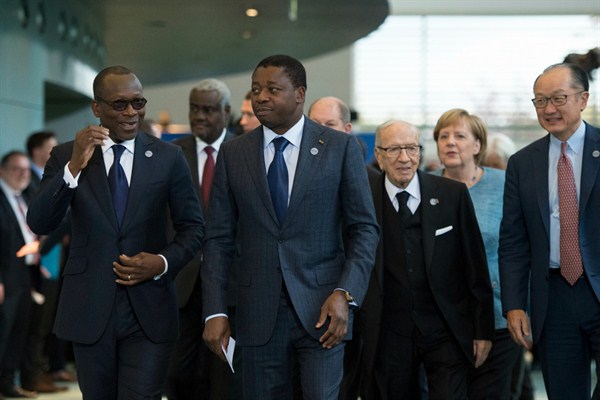The Togolese opposition’s decision to boycott recent legislative elections seemed to play into the hands of the ruling party. As Togo President Faure Gnassingbe, whose family has ruled for over five decades, maneuvers to strengthen his position, his challengers’ options appear to be shrinking.
On a Saturday morning last month, opposition activists in Togo did what they’ve been doing with some regularity for the past year and a half: take to the streets to protest the continued rule of the Gnassingbe family, which has held power for just over five decades.
But the turnout was a far cry from the large-scale mobilizations that put their movement on the map in August 2017. Photos showed a relatively small crowd, some on motorbikes and many on foot, making their way to the outskirts of the capital, Lome, for a rally. While Brigitte Kafui Adjamagbo-Johnson, a leading opposition activist and politician, told Radio France Internationale that she was “not at all worried about the fact that today there have not been as many people as usual,” the weak showing raised questions about the opposition’s next steps at a time when its options appear to be shrinking.

